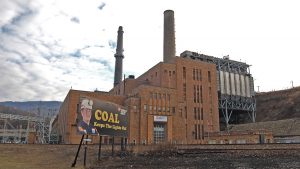
The movements on the Green energy front (What does it mean?) have become complex, obscured tea-leaves reading exercises and here’s another one that will get little attention though it rolls disparate dynamics into one [silent] scream:
The Federal Energy Regulatory Commission on Monday unanimously rejected a proposal by Energy Secretary Rick Perry that would have propped up nuclear and coal power plants struggling in competitive electricity markets.
The independent five-member commission includes four people appointed by President Trump, three of them Republicans. Its decision is binding.
TL;DR – the commission endorses markets. ‘Sustainable’ was an iffy signifier until people. Started. Making. Money. Or put another way: Guy comes into his shrink’s office after a hundred sessions and the doc lays it all out. Everything comes down to: It doesn’t matter which green we’re talking about. They both point to the same place. Ugly, perhaps, and maybe not inevitable enough to happen in time. So parades and grandstanding will seem a little gratuitous and a kind of devolution at the hand of the money power. Again, hate the irony, not the player.
Image: future skate park?
